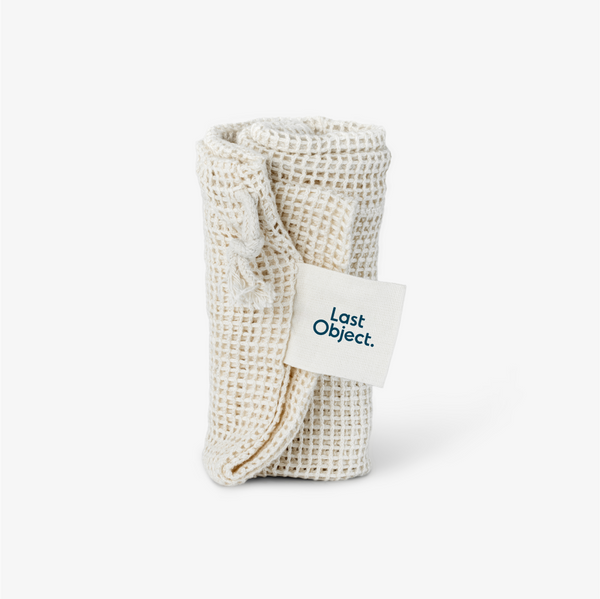Bamboo Vs Cotton - Which One To Choose
02 juin 2021The human impact on our planet is determined by numerous factors. Every material we use, everything we wear, and all the food we grow, leaves a carbon footprint. However, different items have different levels of an environmental impact. For example, some organic materials require less water and less energy than others. Bamboo vs cotton is an excellent example of this.
In the following article, we’ll shed some light on why we choose cotton over bamboo for our LastTissue material. Read on to learn more.
Why We Chose Cotton
Differences Between Bamboo And Cotton
|
|
Organic Cotton |
Bamboo |
|
Pros |
|
|
|
Cons |
|
|
Bamboo

At first glance bamboo appears to be the much more sustainable choice. So, is bamboo better than cotton? Not quite. In the first instance, the only country where bamboo is grown on a commercial scale is China. Unfortunately, a lot of natural forestland is now being cleared to make way for the crop. This is detrimental to these ecosystems. Furthermore, some farmers there now use chemical fertilizers due to the lax environmental regulations. This enables the farmers to get larger bamboo yields despite its naturally rapid rate of growth.
Additionally, most bamboo fabric is created by “cooking” it in potent chemical solvents. This makes the manufacturing process harmful to both workers and the surrounding environment. There is a way of processing bamboo mechanically, without using these harmful chemicals. However, because it is more labor-intensive, and therefore more expensive, this method is rarely used.
In the future, there is potential for bamboo to be harnessed in a more renewable way. But as things currently stand, bamboo farming is a detriment to the environment and key workers. Until this changes, LastObject will refrain from using bamboo in its products.
Cotton

When growing organic cotton, no environmentally harmful pesticides or chemical fertilizers are used. As well as making this a more sustainable product, it also results in a stronger material. This is because the chemicals used in these substances weaken the cotton.
The absence of pesticides and chemical fertilizers has many environmentally beneficial results. For instance, valuable insects remain alive within the ecosystem, thereby protecting its biodiversity. Also, the earth that the cotton is grown in gets more organic content, which prevents soil erosion. The water used is also chemical free. This means it doesn’t harm surrounding plants or contaminate nearby bodies of water. Finally, all the farmers and workers who grow it are not exposed to harmful chemicals.
As a result of these factors, organic cotton is produced sustainably and ethically. This is why LastObject chooses organic cotton as its material of choice.
Layers Of Choice

- The first layer is picking environmentally friendly alternatives to everyday items. For instance, switching from dairy milk to plant-based milk.
- Layer two is about refining this choice further. This means picking the most renewable option among these alternatives. For example, not all plant-based milk has the same footprint. Soy milk is much better for the environment than almond milk. As such, soy milk will be the way to go in this case.
- Layer three is about gaining a deeper understanding of a product’s carbon footprint. For instance, bamboo is ostensibly a better choice than cotton in terms of resources used to make it. However, there is no quality and sustainable assurance or certification with bamboo. It cannot be sourced as certified organic. This makes the quality, ethics, and environmental practices unassured.
Bamboo Vs Cotton: We Have A Winner
MORE Sustainability 101 ARTICLES View all ›
Ready to make
the switch?
- Powerful Cleaning
- Dissolves Easily
- Skin-Friendly
- Eco-Friendly
- No Mess















